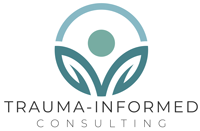It Begins With Me
There are many paths in the field of helping others. Most of us who make this career choice enter college or continue on to graduate school in order to specialize in a particular are of human service. Nurses, teachers, social workers, and pastors, for instance, study and complete internships in order to gather the knowledge and training needed for their area of service. Others enter the helping profession without formal education, either being employed or offering their time voluntarily, and are trained “on the job.” Regardless of how one finds their way, there is often little attention given to the way that we engage others.
Realizing the Significance of Engagement
For many years I was a social worker in the challenging field of child welfare. I carried a large caseload of clients, many of whom had experienced chronic abuse, drug addiction, and poverty. If there is ever a field to judge clients, to enforce rules with little thought to relationship building, it is in child welfare with families who have been accused of child abuse. I realized very quickly that I had a choice. I could use my authority and the laws to try and force compliance, or I could put my judgment aside and take a client-centered approach built on trust.
Finding the Key to Engagement
Some years back, I attended an intensive training on trauma and was fascinated by the new brain science. I began to learn how we all work inside, how our experiences impact our brain, our bodies, our emotional regulation and behavior. How we engage in the world is directly related to our earlier experiences and our formative relationships. To put it more simply, I learned that trauma impacts us inside and makes it hard to trust people, makes it difficult to see the world as a safe place, and can put one in a constant state of “fight or flight”. The focus becomes protection and control, creating a barrier to connection and trust. This is an effective way to act if one is truly in danger, but if one remains in this high state of stress, it is damaging to the body and effects all areas of life.
Starting with Myself
If us as helpers are going to connect with those that have suffered from trauma, we need to be a safe place to go. Our clients need to find us trustworthy, someone that can sit with their suffering without judgment and let them feel that it is safe for them to open up. In other words, the healing starts with the inner work of the helper. In my case, it begins with me.
